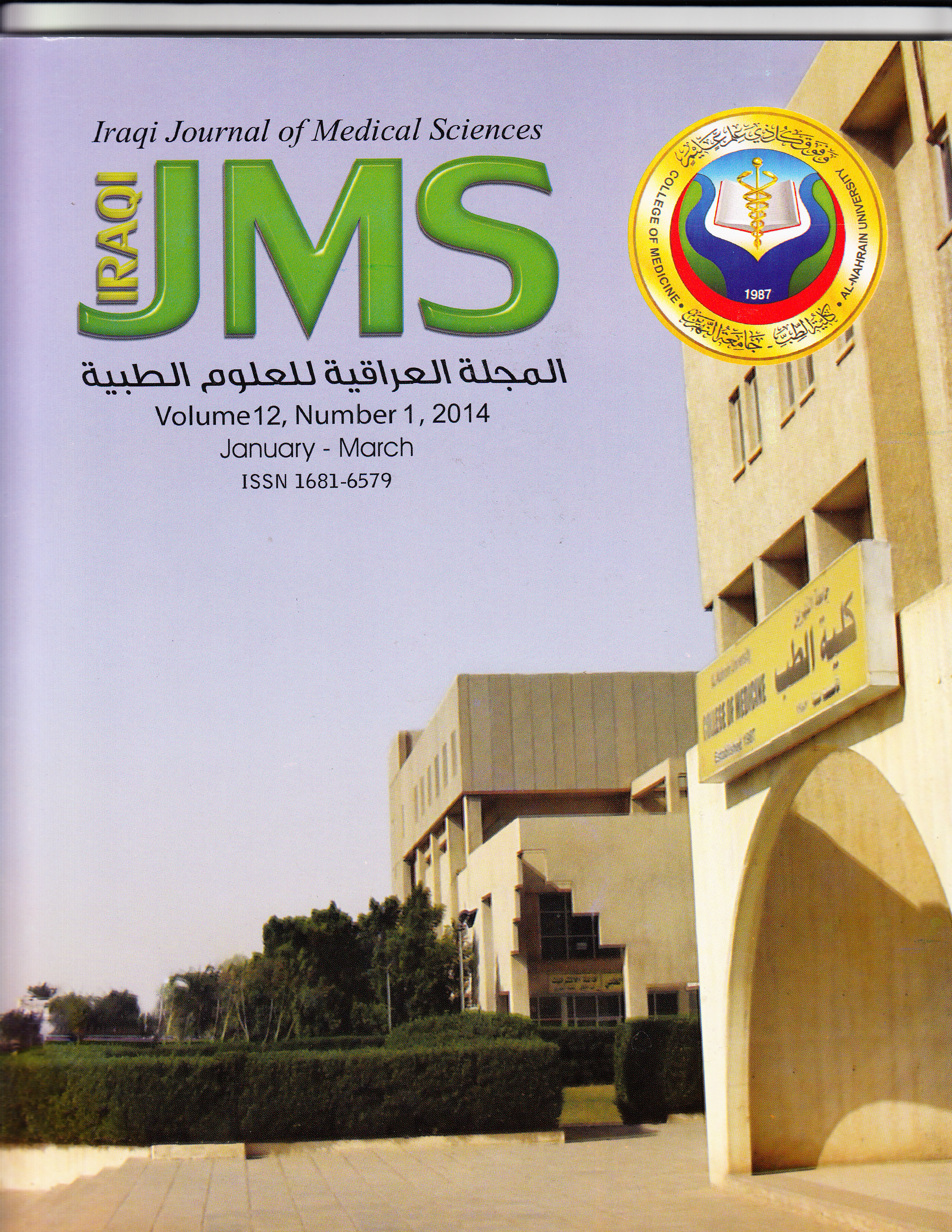|
Vol. 12 Issue 1 January - March / 2014
Published on website | Date : 2016-03-27 12:18:12
ENVIRONMENTAL RISK FACTORS FOR CONGENITAL CARDIOVASCULAR DEFECTS AMONG INFANTS AND CHILDREN IN BASRA, SOUTHERN IRAQGhada M. Abood, Meaad K. HassanAbstractBackground:In Basra, Southern Iraq, an increased prevalence of congenital cardiovascular defects was reported. Although genetic and environmental factors predispose to these defects, little information is available concerning the non-inherited modifiable factors that may cause these defects.
Objectives:To determine the environmental risk factors for congenital cardiovascular defects in infants and children. Methods: A total of 109 patients with congenital cardiovascular defects and 252 infants and children without congenital cardiovascular defects were studied. Their age ranged from 1 day-14 years. History included residence, family history of congenital heart diseases, maternal factors, employment, maternal exposure to drugs and radiation during pregnancy, and maternal illnesses and potential paternal risk factors. Results:A significant association between maternal age (less than 20 years or more than 34 years) (odd ratio, OR 4.65), influenza (OR 4.25), maternal phenobarbital intake (OR 1.54) was demonstrated with congenital cardiovascular defects. On the other hand, lower birth order (OR 0.412), absence of maternal exposure to air pollution like carbon monoxide, nitrogen dioxide, ozone, sulfur dioxide, and particulate matter (OR 0.852), and maternal stressful events (OR 0.822) were associated with a reduced risk for congenital cardiovascular defects. Conclusions:Birth order, maternal age, maternal exposure to air pollutions, maternal stressful events, influenza and phenobarbital therapy are independent risk factors for congenital cardiovascular defects. Keywords:Congenital cardiovascular defect, children, Basra Full-text |
Some tools below are only available to our subscribers or users with an online account |
 |
Please wait until the current process completes ... |




